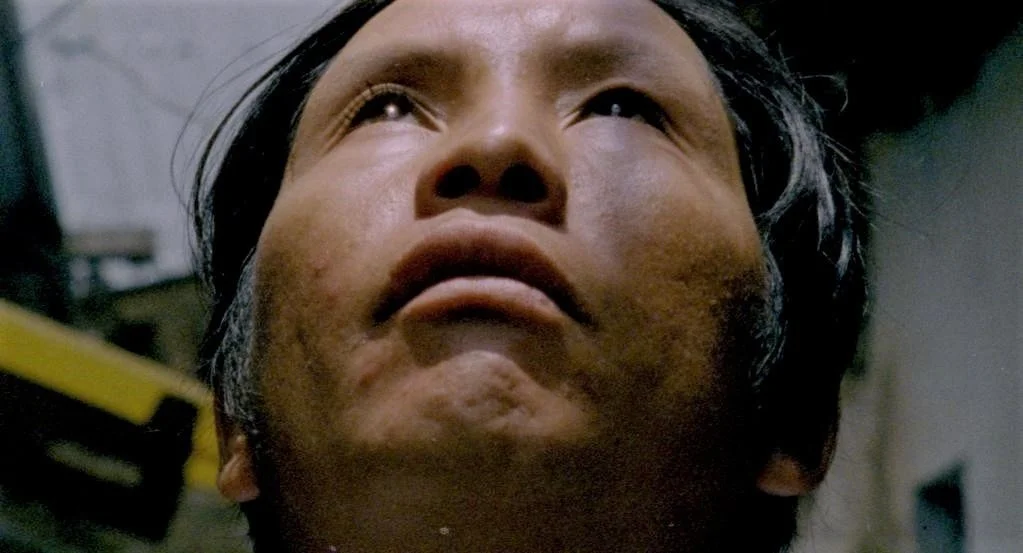The Great Movement
Kiro Russo’s uncompromising, stylised portrait of La Paz fails to find a narrative focus.
There is no doubt at all as to the most appropriate word to describe The Great Movement: that word is uncompromising. It is the work of the Bolivian filmmaker Kiro Russo and it is his second feature but whether or not you regard his steadfastness as being to his credit is a question for each individual viewer. The film is situated in Bolivia's administrative capital, La Paz, and, as such, it gives Russo the opportunity to portray a part of the world that we rarely see featured in movies. However, his stylised approach is one that many will find distracting and all the more so because his aim is to create a work that functions on two levels simultaneously.
Some reviewers have seen The Great Movement as being first and foremost a film portrait of a city. That certainly fits with a pre-credit sequence which seeks to express the size of La Paz, its industrial aspect and the noise that is a constant feature of urban life in this metropolis. On occasion the film ventures into forest land and looks down on the city from the nearby hills. However, the impact of the city is central as the film builds to a frenzied climax, fast editing being used to express the sheer force with which this environment bears down on the individual.
But that is only half the story in that Russo is also following the experiences of some of those individuals, most notably three friends who have walked for seven days to participate in a protest in La Paz by former miners left without work and now seeking jobs in the city. One of these three, Elder (Julio César Ticona), is a man who succumbs to a virus which is arguably intended to be seen as a symbol for a society that fails to care for its workers. He is helped by an old woman (Francisa Arce de Aro) whom he does not recognise but who claims that he is her godson. Here is a narrative that calls for good storytelling as it brings in a tramp-like figure, Max (Max Bautista Uchasara), who, being something of a Shamanic healer, seeks to treat Elder’s fever.
Unfortunately, in mixing these elements with his city portrait (not the easiest blend to bring off in any case), Russo fails to bring the story thread into clear and effective focus. Apparently Elder was also a character in an earlier Russo piece, Dark Skull (2016), but this film is meant to stand on its own and as presented here we know very little indeed about Elder and his friends. At times their conversation is relegated to the soundtrack while the camera explores parts of the city and, given that Russo is not afraid of stylised or even surreal touches, one wonders if such scenes are part of his vision for the film or a cover-up due to his mainly non-professional cast having limited acting ability. Whatever the reason, the three young men are no more than names being given no depth or individuality. It is also the case that poor storytelling is illustrated by the fact that when Max is first introduced into the film there is for quite a long time no indication of who he is or why we are suddenly looking at scenes in which he is the central figure.
The Great Movement could have supplied an effective insight into contemporary Bolivia with a special focus on working-class lives and on the survival of age-old beliefs and powers of healing. But Russo goes his own way to such an extent that his film fails to communicate as it should. This failure is all the clearer in my eyes because one can see parallels between what he is seeking to do here and what was achieved by Maya Da-Rin in her film The Fever made in 2019 and set in the Brazilian port city of Manaus.
Original title: El Gran Movimento.
MANSEL STIMPSON
Cast: Max Bautista Uchasara, Julio César Ticona, Israel Hurtado, Gustavo Milán Ticona, Ricardo Aguilera, Francisa Arce de Aro, Armando Ochoa, Marcela Chambi, Marlene Pinto, Carmen Quisbert.
Dir Kiro Russo, Pro Kiro Russo, Pablo Paniagua and Alexa Rivero, Screenplay Kiro Russo, Ph Pablo Paniagua, Pro Des Lorena Peñaloza, Ed Kiro Russso, Pablo Paniagua and Felipe Gálvez, Music Miguel Llanque, Costumes Viviana Baltz.
Socavón/Altamar Films/Doha Film Institute/Bord Cadre Films/Sovereign Films/Miguel Angel Peñazola-Sovereign Film Distribution.
85 mins. Bolivia/Qatar/France/Switzerland/UK. 2021. UK Rel: 15 April 2022. Cert. 15.


